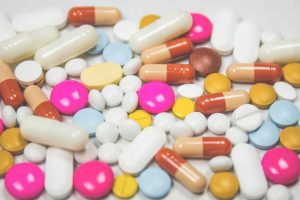Compliance Perspective – Fraud:
If an issue involving the use of compounded prescription medications arises with residents in the facility, the Compliance Officer should review the facility’s policies and procedures with the Compliance Committee to ensure that the facility uses only persons authorized by state or federal regulation to dispense medications while contracted by the facility. The facility’s consulting pharmacist and facility leadership can collaborate to coordinate pharmaceutical services, to guide the development and evaluation of pharmaceutical services procedures, and to help the facility identify, evaluate and resolve pharmaceutical concerns. Additionally, the Compliance Officer in discussion with the pharmacy and the pharmacy consultant will ascertain the processes the pharmacy uses to protect the facility’s residents and ensure quality control if compounded medications are used. The Compliance Officer and DON can develop and implement an audit of residents’ charts to discover any use of compounded prescription medications. The Compliance Officer with the consultant pharmacist may also provide educational materials about the potential risk in using compound medications from unknown providers to the residents and their families through the Family and Resident Councils.
The owner, Nicholas A. Borgesano, Jr., of a Florida pharmacy, thought to be at the center of a $100 million scheme involving compounded prescription medications, who pleaded guilty late last year in federal court to charges of healthcare fraud conspiracy was recently sentenced to 15 years in prison. Six co-conspirators were sentenced earlier.
According to the U.S. Department of Justice, Borgesano and his c o-conspirators submitted false and fraudulent reimbursement claims for the compounded medications such as pain and scar creams to private insurance companies and to Medicare and TRICARE—the medical program providing health insurance to military members.
o-conspirators submitted false and fraudulent reimbursement claims for the compounded medications such as pain and scar creams to private insurance companies and to Medicare and TRICARE—the medical program providing health insurance to military members.
Borgesano admitted that he and his co-conspirators manipulated billing codes in reimbursement claims and submitted claims for pharmaceutical ingredients not in the prescription. Additionally, kickbacks and bribes were paid for prescriptions and patient-identifying information which included a physician who allegedly signed prescriptions for patients he never saw.
Instead of dispensing manufactured medications, compounding pharmacies mix individual ingredients to customize prescriptions in dosage and strength for individual patients. Compounding pharmacies have been targeted for crackdown by the U.S. Food and Drug Administration because regulators have uncovered unsafe practices at some facilities related to a meningitis outbreak resulting in some 2012 patient deaths.
The main hub of Borgesano’s operation was his New Port Richey pharmacy, A to Z Pharmacy. He also owned and used other pharmacies in his fraudulent scheme, including: Havana Pharmacy, Medplus/New Life Pharmacy and Metropolitan Pharmacy, all of Miami and Jaimy Pharmacy and Prestige Pharmacy, both of Hialeah, Florida.













































































